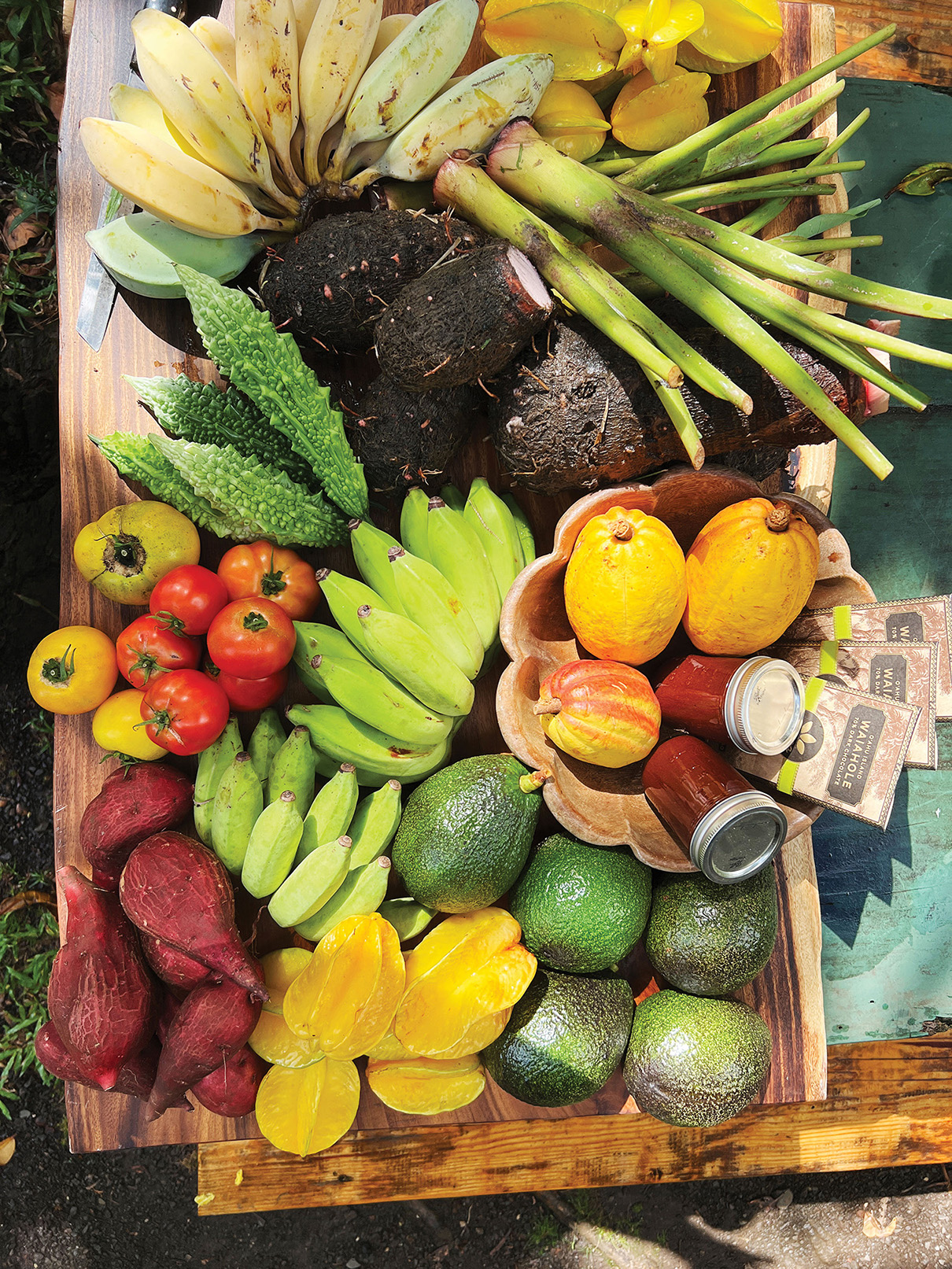When Food Becomes Health Care

Using food as medicine is a powerful way to tackle one of the most significant social determinants of health, especially in communities facing food insecurity.
The Food is Medicine movement is gaining momentum in the health care field, with meal and grocery distribution programs, produce prescriptions, and more. And it all stems from the principle that better nutrition not only leads to healthier lives, it promotes equitable and preventive health care and reduces the risk of chronic diseases.
“I think health care is catching on to the fact that food is a primary health care intervention. It’s a form of primary health,” says Lucas McKinnon, managing director of the Hawai‘i Good Food Alliance.
The organization represents a diverse hui of organizations and individuals, from “farmers to producers to aggregators to food banks to federally qualified health care systems to cultural practitioners,” says Ka‘iulani Odom, executive director of the Hawai‘i Good Food Alliance.
Prescribing Produce
The alliance is piloting a Food is Medicine program with the Waimānalo Health Center, providing Medicaid patients with weekly produce boxes sourced from local farmers. Supported by Kaiser Permanente, the six-month pilot is laying the groundwork for the state’s Section 1115 Medicaid Demonstration Waiver. Beginning in 2026, the waiver will allow Medicaid coverage for nutrition services, such as produce boxes and medically tailored meals customized to patients’ health conditions.
Kaiser Permanente is helping to fund the pilot, ensuring that when Medicaid is ready to launch its nutrition support services, infrastructure and partnerships will already be in place.
In a separate effort focused on the benefits of nutritious food, Alternative Structures International, dba Kahumana, recently completed a one-year Food is Medicine program that supplied biweekly produce boxes and healthy meals to residents of its ‘Ohana Ola transitional housing in West O‘ahu. Funded by Kaiser Permanente, it significantly improved access to fresh food. Each box contained a variety of vegetables, roots, leafy greens, and fruit.
“The program contributed to our food security here in Hawaii, supporting small-scale and socially disadvantaged local farmers,” says Avary Maunakea, executive director of Kahumana.
It also introduced residents to agriculture programs that could supplement their incomes while also contributing to the local food system.
“The impact that Kaiser Permanente allowed us to make was substantial,” says Maunakea. “These are programs especially in West O‘ahu where not much food is grown anymore, but this did help us and it gave us that ability to make this impact.”
Not far away, the nonprofit ‘Elepaio Social Services, a subsidiary of the Wai‘anae Coast Comprehensive Health Center, has many different programs that support food as medicine, from its farmers markets and prescription food programs to its keiki and kūpuna pantries.
“We offer five sites a week to serve our kūpuna, who are 60 years and older. Every week, we serve an unduplicated 1,000-plus kūpuna, providing them fresh, local produce, some pantry items, and ready to eat healthy meals,” says Alicia Higa, executive director of ‘Elepaio Social Services. The nonprofit’s workers load about 50 to 60 pounds of food into each car per week at the drive-through distribution.
Higa says feedback from the people ‘Elepaio helps underscores the importance of the work. “We’ve had seniors tell our pantry manager that what we provide really dictates what they're going to eat for the entire week,” she says. “They really depend on it. So I think stress levels have gone down for many of them. They really are so grateful when they come through and express how needed our services are.”
System-level solutions
To address food security, Hawai‘i Investment Ready is casting a wider net. It created a Food Systems Accelerator program that targets systems-level challenges to diversifying Hawaii’s food systems. “We have people who want to grow and we have people that want to buy, but we haven’t seen a lot of progress toward increasing our local food production for local consumption,” says Keoni Lee, co-CEO of Hawai‘i Investment Ready.
The accelerator brings together two cohorts: an enterprise cohort full of innovators working on food system solutions, and a funder cohort with government and philanthropic funders, including Kaiser Permanente. Lee says many of the enterprises are part of the Food is Medicine ecosystem that’s working to strengthen the local food system.
“So now we have a collective of aligned, diverse stakeholders across the food system that are in relationships, collaborating, doing things that weren’t possible five years ago,” Lee says. “I think the value of our network and the conversations that are now possible because of all of this collaboration that’s happening in Hawaii is going to be able to move and solve this systemic challenge together.”